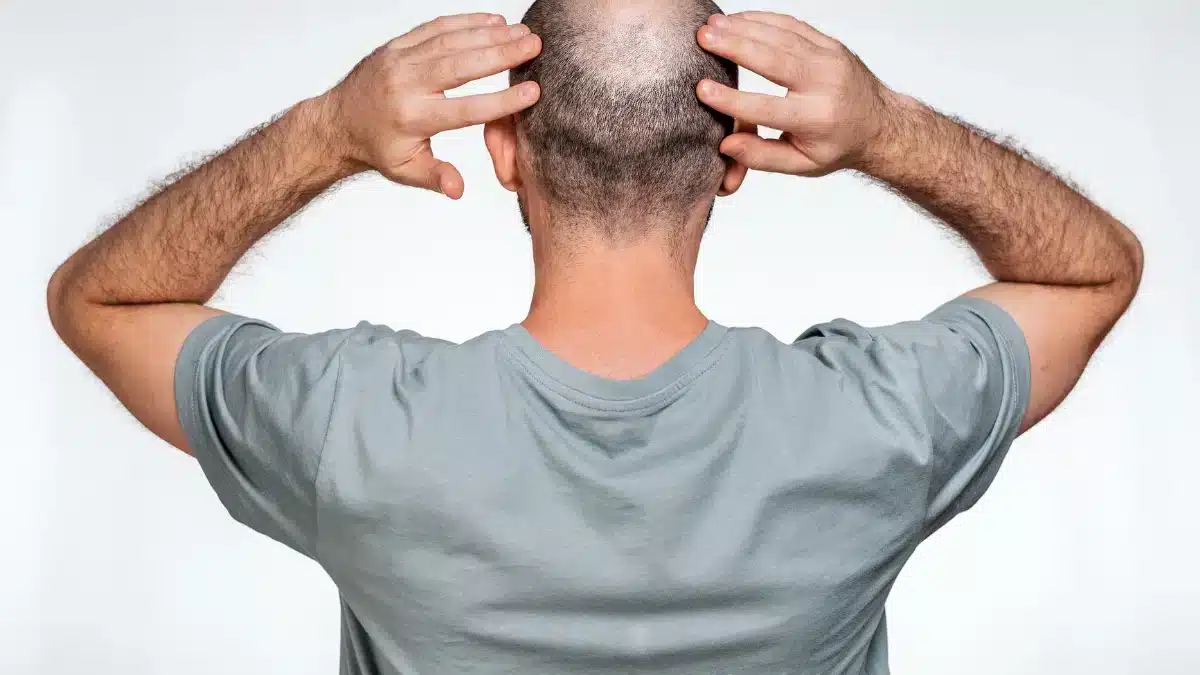Alopecia Areata Self-Care: Nurturing Your Mind, Body, and Spirit
Alopecia Areata is a skin condition where hair loss occurs suddenly, leading to patches or complete baldness.
Dealing with this condition can be emotionally challenging and affect a person’s self-esteem and well-being.
Therefore, along with medical treatments, self-care is essential in managing Alopecia Areata and staying positive.
Self-care involves looking after your physical, emotional, and mental well-being, which is crucial when dealing with Alopecia Areata and its difficulties.
For more information about Alopecia Areata self-care, keep reading the article.
Educate yourself
Learning about the condition and its treatments can help you feel more in control of the condition.
Stay updated on new research, treatments, and discoveries in this field.
Talk to experts about Alopecia Areata for expert advice on managing the condition.
Practice self-acceptance
Embracing and accepting yourself with Alopecia can be challenging, but coping with the condition is essential.
Self-acceptance can make the journey easier.
If it is difficult to embrace the condition alone, seeking guidance from a therapist or counselor can be helpful.
They can offer guidance and encouragement towards accepting and embracing yourself with this condition.
Stress management

Stress can trigger Alopecia Areata flare-ups.
Therefore, it is essential to manage stress while dealing with Alopecia Areata.
Try doing activities that promote relaxation and reduce stress levels, such as practicing mindfulness meditation, deep breathing exercises, yoga, exercising, or any hobbies you enjoy.
Eat a well-balanced diet
A nutritious and well-rounded diet can improve your well-being, boost energy levels and potentially reduce the impact of this condition.
According to a study, adopting a diet that contains vegetables, fruits, legumes, and grains can positively impact the microbiome and help decrease the symptoms of Alopecia Areata.
Protect the affected areas from cold
You may become more sensitive to cold when you lose hair from Alopecia Areata in areas like your scalp, inside the ears, or the nose.
It’s essential to protect these areas from chilly temperatures.
Keep yourself warm by wearing hats and scarves to cover and shield those affected areas.
This will help you stay comfortable and cozy.
Protect your scalp and cover it up
When you have hair loss on your scalp, it’s essential to protect it.
Apply sunscreen before going outside, or wear a hat to shield your scalp from the sun.
This will lower your chances of sunburn and reduce skin cancer risk.
Using sunscreen with broad-spectrum protection, SPF 30 or higher, with water resistance, will protect the affected areas of the scalp.
Examine your nails for any noticeable changes
If you have Alopecia Areata, it can affect your nails as well.
If there are any changes in your nails, let your dermatologist know.
Sometimes, these changes can cause pain or make it difficult to do daily activities like typing or playing an instrument.
Your dermatologist will assess your nails and recommend any necessary treatments.
Seek support
Getting support is essential when dealing with Alopecia Areata.
Join a support group or speak with a therapist who can help deal with the emotional side of Alopecia Areata.
Talk to your friends and family about your experience with Alopecia. Explaining how they can offer support can also be beneficial.
Natural remedies for Alopecia Areata

While there is no proper cure for Alopecia Areata, self-treatment combined with natural remedies and medications can sometimes help.
In a study, participants with Alopecia Areata were taught by an aromatherapist to perform nightly scalp massages using essential oils (thyme, rosemary, lavender, and cedarwood) mixed with carrier oils or carrier oils alone.
Results showed that the essential oil group had significant hair growth improvement compared to the control group.
Garlic extract can stimulate hair growth by reducing inflammation and modifying the immune system.
Another study found that combining garlic gel with topical steroids was more effective in treating Alopecia Areata than using topical steroids alone.
Takeaway
To effectively manage Alopecia Areata, educate yourself about the condition and treatments.
Seek expert advice from doctors and practice self-acceptance.
Manage stress, maintain a healthy diet, protect your scalp from the sun and cold, and check any nail changes.
Seek support from support groups or therapists.
Consider natural remedies like essential oil scalp massages or garlic extract.
It is important to remember that self-care and support can make a difference in managing Alopecia Areata.
Frequently Asked Questions
What is the fastest way to cure Alopecia Areata?
At present, there is no proper cure for Alopecia Areata. However, some treatments, like Minoxidil, help in hair regrowth. The primary treatment for Alopecia Areata is corticosteroids, potent anti-inflammatory medicines that can suppress immune system activity.
What is the best natural treatment for Alopecia Areata?
While there isn’t much scientific evidence, some natural treatments like rosemary, thyme, sandalwood, lavender oils, and garlic are believed to be helpful for Alopecia Areata. However, consulting an expert before using any natural remedies is essential.
What herbs are good for Alopecia Areata?
Some herbs like rosemary, ginkgo biloba, green tea, and stinging nettle might be helpful for Alopecia Areata. But, consult with a doctor before using any herbal remedies as their safety and effectiveness may need to be scientifically proven.
Is oiling good for Alopecia?
While oiling the scalp may not cure Alopecia Areata, it can nourish the scalp and hair follicles, making the scalp healthier. Still, it is recommended to consult an expert before applying oils to your hair.
What is the biggest cause of Alopecia?
The exact reason for Alopecia Areata is unknown. It is considered an autoimmune condition where the immune system gets attacked. Stress, hormones, genetics, and certain medical conditions are also reasons that can lead to hair loss.
WowRx uses only high-quality sources while writing our articles. Please read our content information policy to know more about how we keep our content reliable and trustworthy.






